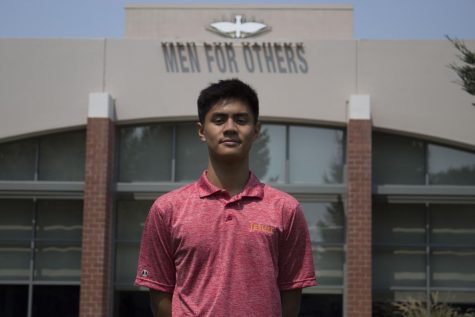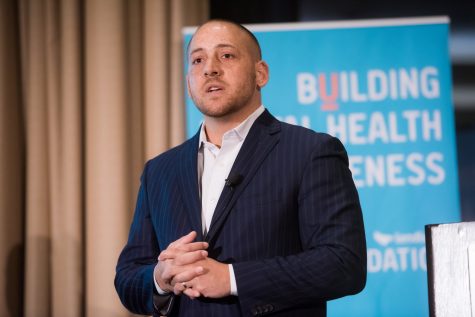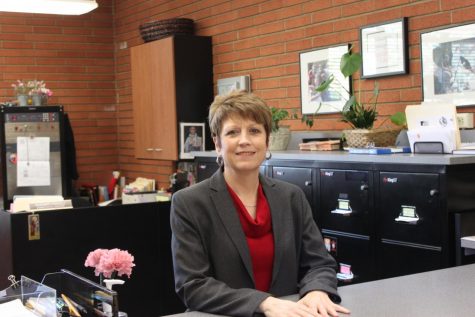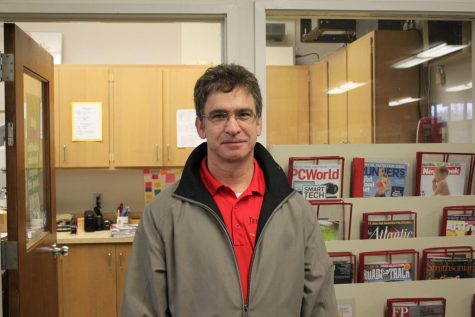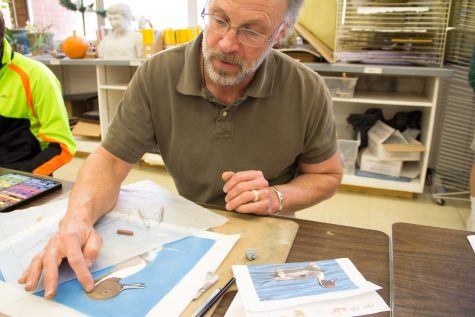Full athlete, full person
Athlete. Conductor. Son. Teacher. Actor. Student. Coach. Brother. Priest. You probably fill more than one of these roles, perhaps even three or four, but what happens when you only commit to just one?
Mr. Aaron Taylor, an advocate for mental health in athletes, would like to help you answer that question. He will be speaking at Jesuit High School’s annual Social Justice Summit on aspects of mental health for athletes.
A former football player for Notre Dame and later in the NFL for the Green Bay Packers and the San Diego Chargers, Mr. Taylor currently works as a college football analyst and television sportscaster for the CBS Sports Network, and he frequently speaks on teamwork and performance in the athletic world.
His expertise on mental health in athletics stems from personal experience and those of his teammates. While playing in college and in his professional career, Mr. Taylor faced internal pressure to perform at a high level which caused him to suffer from anxiety and depression.
In his article on mental health and athletes, “Game Face is not the Only Face,” Mr. Taylor admits that “many of my former collegiate and professional teammates have since shared with me that they suffered similar fates, for many of the same reasons.”
“Beginning in college and throughout my professional career, I battled depression with the same regularity as blitzing defenses,” Mr. Taylor explained in the article. “. . . Due to the fear of looking weak or being judged, I hid my condition from those closest to me, including my coaches and teammates.”
One way Mr. Taylor explains these issues is through the concept of “faces.” “The game face,” the face of performance, can become an athlete’s only identity, obscuring other real faces that make up the “full person.” Mr. Taylor will focus on this issue during his speech on Tuesday, Feb. 5th.
“He’s going to talk about being a full person — not just an athlete or scholar or son — not one thing but many things,” said Ms. Crew-Renzo, the organizer of the Social Justice Summit. “And knowing [how to be a full person] helps us attend to good mental health.”
Many Jesuit students know the reality of the “game face.” Because athletes spend so much time and effort working at their sport, it’s difficult for them to identify themselves as someone other than “athlete.” Following that narrow path of commitment can lead to consequences if not handled carefully.
“When you start training to be an athlete, you commit so much time and effort into that, that you start associating who you are with what you do,” said Ms. Lina Taylor, former Olympic beach volleyball player and wife to Mr. Taylor. “And that happens not just with us, but it also happens with people that really require a lot of time and effort to achieve some of the the higher level goals that they set for themselves.”
Mr. Taylor’s message isn’t just for athletes. Facing pressure to perform at a high level can reach other activities like academics and music.
“What Aaron is going to try to do is present a point of view that says that you’re not just what you do,” Ms. Taylor said. “There is more to you. You’re not just what people see in you. [He wants to] challenge students to find that deeper level that could give them a kind of a wider range.”
If you are interested in asking Mr. Taylor a personal question, you’re welcome to send questions to [email protected] or [email protected]. Mr. Taylor will answer some questions he receives at the end of his talk. Don’t worry, Mr. Taylor will leave the name of the person asking the question anonymous.


